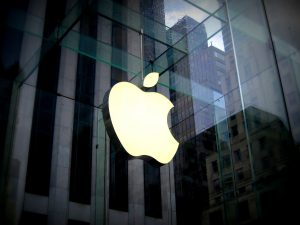The FAANGs have been the most popular stocks on Wall Street for some time now and for good reason. Facebook [FB], Apple [AAPL], Amazon [AMZN], Netflix [NFLX] and Google [GOOG] have a total market cap of approximately $3.5 trillion.
To put that into perspective—that’s more than the UK’s 100 biggest companies put together.
They’ve witnessed increases that range between 100-600% over the last three years. If you’re looking to check out how the indices have fared during this period, the numbers played out relatively low in comparison—the NASDAQ Composite generated 67%, while the S&P 500 [SPY] could returned around 40%.

Although the FAANG stocks account for almost half of the NASDAQ index, the massive rise in stock prices have worked in their favor—helping them substantially increase investor wealth and easily beat index returns.
Innovative products and business models
The FAANGs managed to completely disrupt several tech verticals by focusing on innovation and catering to specific needs.
Apple launched the iPhone in 2007 and is now one of the global leaders in smartphone manufacturing. It has managed to compete with other tech giants such as Samsung, comparatively new companies like Xiaomi and disrupt business models that were followed by former market leaders such as Nokia and BlackBerry.
In August 2018, Apple was the first US-based company to reach a market cap of $1 trillion.
Amazon went from being a loss-making online bookstore in 1997 to a profitable tech behemoth. After Amazon overtook Walmart’s [WMT] market cap in 2016, it has almost doubled in value.

The breakout success of Amazon Web Services propelled the firm to profitability and sent its market cap soaring. Amazon recently touched the $1 trillion market cap and is currently valued at a whopping $952B.
Facebook’s biggest bet was on building one of the world’s biggest social media network—and it paid off mighty well. The company’s net profits have risen from $53 million in 2012 to $16 billion in 2017.
Netflix isn’t lagging behind, either. It’s benefitted immensely from the cord cutting phenomenon and the shift towards streaming services. From a DVD rental firm in the 1990’s to the leading online streaming content company, Netflix has delivered significant returns to its shareholders.

Google realized the potential of the internet and created a revolutionary product nearly two decades ago. Google’s Larry Page and Sergei Brin were willing to sell Google to Altavista for a paltry $1M in 1998 which did not move forward. Yahoo joined the same bandwagon, and turned down an offer to acquire Google for $5B in 2002.
Google has wasted no time in diversifying into multiple revenue streams and briefly overtook Apple as the most valuable company in 2016.
Has the Downturn Started?
The upward spiral of FAANG stocks has been likened to that of the tech bubble during the dotcom crash of 2000. We saw a ton of e-commerce companies blow up and burn cash, eventually leading to a worldwide market crash.
Recently, data revealed that short bets for FAANGs increased 40% year-over-year to a whopping $37B at the end of August 2018, indicating a negative sentiment in the stock market.
Facebook and Netflix have both been impacted by slowing user growth this year that drove share prices lower. Facebook was also involved in a massive data-privacy breach scandal.
Amazon prices slumped lower by 5% last week shortly after the company reached its $1 trillion valuation in intra-day trading.
The sluggish global market environment, trade war tariffs, and other macroeconomic factors have impacted FAANGs stocks this year after a spectacular run in 2018.
Despite these headwinds, Apple is up 32% in 2018, while Netflix, Amazon, and Google have risen 82%, 67%, and 11.3% respectively. However, Facebook’s shares have slipped by 7.6% this year.

Growth story far from over
While there might be a short-term correction in FAANG stocks it will also make them cheaper and more attractive.
Warren Buffett remains optimistic about Apple and has been increasing stake in the company for a few years now.
Apple and Google are targeting new business segments such as autonomous cars. Netflix, Amazon, and Facebook are already banking on the massive potential of emerging markets that open new regions to drive sales.
The FAANGs have massive cash balances that can be used for acquisitions as well as investments in research and development that will result in the product innovation and efficient services.
As long as the FAANGs continue to achieve substantial sales growth and successfully target new growth verticals, investors will remain bullish.


You must be logged in to post a comment Login